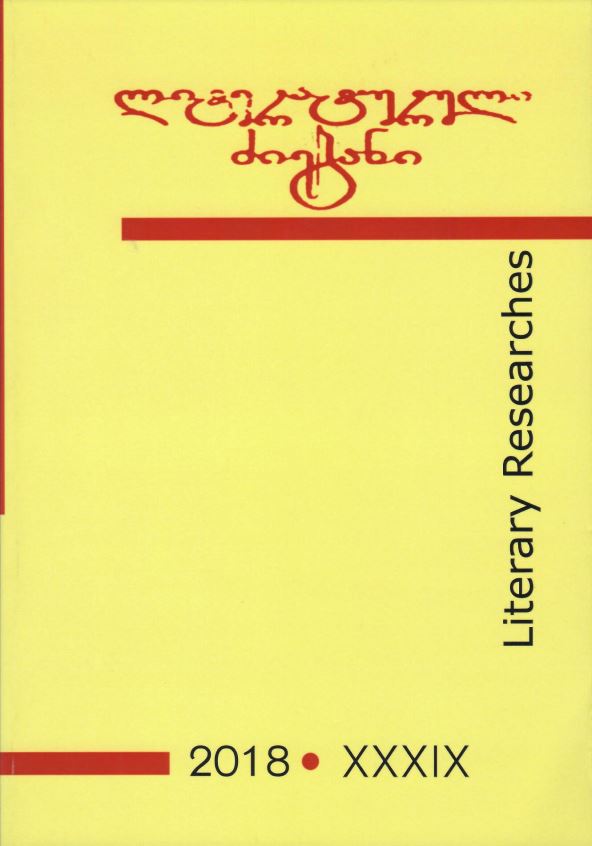Published 2018-12-20
Keywords
- Universal Character,
- Ilia Chavchavadze,
- Hamlet,
- Shakespearean Motifs
How to Cite
Abstract
Ilia Chavchavadze was related with Shakespeare’s works throughout all his life. Together with Ivane Machabeli, he translated “King Lear” and actually laid the foundation for a new school of Georgian translation of Shakespeare. Shakespeare’s theme appears in his publicist texts. He frequently referred to Shakespeare’s quotes from various plays and directly from “Hamlet”.
In one of his stories Glakhis Naambobi (“The Sorrow of a Poor Man”) the Shakespearean motifs (“Hamlet”) can be also “read”. However, the better the reader is familiar with Chavchavadze’s creativity, on the one hand and with Shakespeare, on the other hand, the more difficult will be for him to believe in this assumption (to see a Shakespearean character in Glakhis Naambobi) if the evidence does not rely on accurate factual material and logical reasoning.
However, it is also an axiom that in a literary text the bearer of a universal idea can be only a universal character, i.e. the scale of an idea is determined by the height of the character. Thus, one of the main tasks for accurate perception of a piece of work is finding out the character of the personage, proper understanding of his literary genesis.
If we consider Ilia Chavchavadze’s works in this perspective and also take into account the author’s conscious attitude to the world processes of that time (not only literary), then our attempt to see the universal idea beyond social confrontation looks quite reasonable in the Glakhis Naambobi.
Nineteenth-century Georgian writing passed with a motif of overcoming the entire Middle Ages. In this respect, perhaps, the Danish prince turned out to be the most required character for the Georgian literature of this period. The Georgian counterpart of him (Gabriel in Glakhis Naambobi had many reasons for revenge. Of them, perhaps the most important was social inequality.
In our literature there are often examples when Georgian literature “awakens” literary heroes of the ancient era and characters of the knightly age. They involve into the action with their own character in an environment full of modern, modernist or postmodern sensibility.
Hopefully, a reader will see this opportunity in Ilia Chavchavadze’s Glakhis Naambobi too, and accepts it as a kind of dialogue between the past and the present, as an attempt to restore the broken relationship of our times, the beginning of which is always equally enviable matter..

